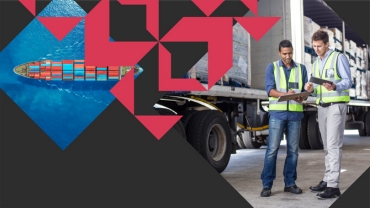
Building fairer, more sustainable infrastructure
We estimate £40bn per year is required, on average, to be invested in low carbon and digital infrastructure over the next decade, with similar levels thereafter, to meet the UK’s Net Zero target. This makes it one of the defining business opportunities of this generation, and the UK will need a wide range of technologies, systems and solutions in place.
But to deliver a truly sustainable recovery, we also need to consider broader measures of success, encompassing health, social and economic outcomes.
Government investment in infrastructure seeks to provide the targeted intervention needed to level up economic growth and opportunity across the country. Seizing this opportunity will require a joined-up approach to planning and investment, as well as an understanding of local challenges for communities and businesses and the need to align with investment in jobs, skills and education.
Such an approach involves greater cross-industry collaboration - including public and private-sector partnership - and smarter use of data and technologies.
Optimise, optimise, optimise
Future-proofing the UK’s infrastructure is not just ‘build, build, build’. The changing patterns of how and where we work and travel and the drive to greater sustainability mean we must also think more about how to optimise the operation and use of the existing built environment - including a growing focus on repurposing what is already in place.
“Knocking a building down and rebuilding it is so much more carbon intensive. And if we’ve got something already there that’s not being used, how do we adapt that and do something different?”
Diane Walmsley, Director within PwC UK's Construction team
Walmsley continues, "That might require smarter use of technology, but it may also need regulatory levers, such as tax incentives or planning reform to be driven by the government. At the moment it can be difficult to do and you don’t always get the outcomes you want.” New opportunities will arise for businesses who can develop two distinct capabilities: a sophisticated understanding of society’s changing behaviours and the ability to rapidly respond to the subsequent demand shifts. Whether these apply between rail operators and passengers, retailers and shoppers or landlords and tenants, thinking about the built environment in an integrated, interconnected way will unlock value.
Jamie Houghton, Transport Sector Leader said: “There is an inflexibility to the physical infrastructure but there is an inherent flexibility to the way consumers use it. Look at how the elasticity of pricing can change behaviour."
“We have to become more adaptable, agile and flexible around how people use infrastructure. If we can spread the way and time people use the infrastructure, we will all get a better experience and we will get better use out of it.”
Jamie Houghton, Transport Sector Leader at PwC UK
A network of networks
But none of this change can be achieved by one sector or industry acting alone.
Take the government’s Oxford-Cambridge Arc proposals to transform and better connect those two cities and surrounding rural areas. Key to the levelling up agenda, the government is seeking to create thousands of new jobs along a high-tech corridor, drive investment in industries such as life sciences and technology, enhance the environment and double the economic output of the region to over £200bn by 2050.
Delivering such a transformative project will require a collaborative approach across industries to create transport networks such as the East-West rail link, new housing and fibre broadband and 5G connectivity.
Increasingly, we’re also seeing major players looking at the market opportunity beyond their traditional industry to drive value for their businesses. Whether that’s housebuilders collaborating with fibre providers, logistics businesses investing in battery storage to decarbonise their fleet or retailers investing in renewable energy. There are real opportunities for companies not only to invest to support their existing operations but to evolve and grow their businesses.
How technology brings resilience to infrastructure
For this growth to be sustainable, and to create a legacy for the UK, we must have a focus on resilience. One key lesson from the pandemic for all businesses is to expect the unexpected and be prepared to adapt, and data and technology have a crucial role to play.
Using data and AI - responsibly - creates the possibility of a future where transport networks can better monitor usage to optimise services for users. Likewise with office spaces, where companies can use smart technology to create safe and attractive environments for their employees. For citizens, this delivers the technology-driven ultra-convenience they have come to expect in other parts of their lives.
Gareth Murfitt, Technology Industry Leader at PwC UK, said: “Think about the role of connectivity within physical infrastructure and the resulting data that informs how we can all use the built environment and travel. Consumer and individual demands upon our infrastructure post pandemic will keep increasing."
“Being seamlessly connected, and using data to customise infrastructure to personal preference so that it interacts with us, will become critical to meet the needs of ever more discerning consumers and all the industries who rely upon that infrastructure.”
Gareth Murfitt, Technology Industry Leader at PwC UK
Technology can also help the whole lifecycle management of construction projects, from using virtual reality to let people experience the spaces during the design stage, to using sensors to quickly identify maintenance issues, to keeping detailed digital records of structure and construction materials to enable quicker, more effective renovations and repurposing.
An integrated, connected future is essential for UK growth
Nearly half (45%) of the UK CEOs responding to the 24th Annual PwC CEO Survey said the quality of basic infrastructure in the UK was currently an area of concern. In order to attract investment and talent, connect people to opportunity, and support the growth of key industries that will be vital to the UK’s success, it has become all the more urgent for UK industries to work together to demonstrate the creativity and agility needed to deliver the essential infrastructure and real estate the UK needs to prosper.
Investing in infrastructure will not only create jobs and directly drive economic growth in industries such as transport, technology and construction, it will also act as a stimulus to growth across every industry and every region that relies upon our infrastructure as a foundation for their own success.
Contact us



Reading Senior Partner, UK Technology Industry Leader, PwC United Kingdom
Tel: +44 (0)7595 849892

Real Assets Leader, Partner, Corporate Finance, PwC United Kingdom
Tel: +44 (0)7990 506355





















